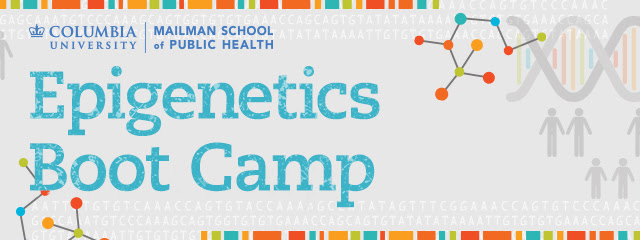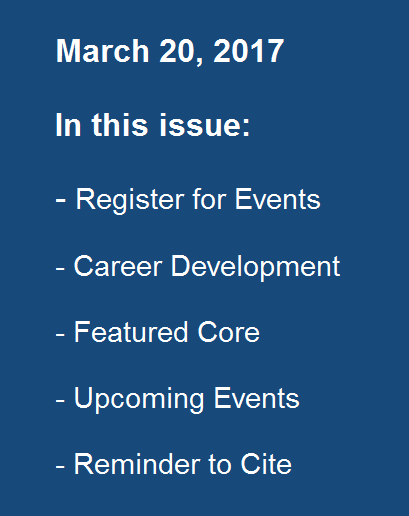Please contact Michelle Daoud at Lowdenm@umich.edu for items you would like included in our bi-monthly M-LEEaD Newsletter
|
|
Register for M-LEEaD Events  Health Equity at Industrial Scale: Lautenberg Chemical Safety Act Under the Trump Administration
Health Equity at Industrial Scale: Lautenberg Chemical Safety Act Under the Trump Administration
Tuesday, March 28, 2017
12:00 - 2:00 pm, reception to follow
Palmer Commons (Forum Hall)
University of Michigan
100 Washtenaw Ave, Ann Arbor, MI 48109
Please register here
The Trump Administration will be setting precedents for the new Lautenberg Chemical Safety Act (amended Toxic Substances Control Act). This law was the first major environmental statute to be updated in over 20 years and passed with bipartisan support. The new law promises to change how chemicals are evaluated for environmental health hazards. Chemicals from consumer products and industrial processes find their way into our bodies as well as our water, soil, and air. National leaders will discuss implications for research, children's health, equity and policy.
Speakers include Dr. Gina Solomon, Deputy Secretary Cal EPA, and Dr. Tracey Woodruff, UCSF Program for Reproductive Health and the Environment. You may have heard Dr. Woodruff on NPR or To the Point or read her piece in the BNA. US EPA's Dr. Tala Henry is the division director responsible for risk assessment for the Lautenberg TSCA implementation. Nick Schroeck, J.D., from Wayne State's Transnational Environmental Law Clinic will provide an overview of the new law.
This event is sponsored by: University of Michigan Lifestage Environmental Exposures and Disease Center (M-LEEaD) and Wayne State Center for Urban Responses to Environmental Stressors (CURES).
Additional Sponsors are: Michigan Public Health Training Center; University of Michigan School of Nursing; Wayne State Law School; Great Lakes Environmental Law Center; U-M Environmental Law & Policy Program; U-M School of Public Health - Epidemiology
The free event is open to the public and it will be live-streamed and recorded for future viewing. To participate through live-stream click on the live-stream link during the event (no pre-registration for remote access).
Please register for the event here: https://www.eventbrite.com/e/health-equity-at-industrial-scale-the-frank-lautenberg-chemical-safety-act-under-the-trump-tickets-32326925705
|
|
Workshop Title: Epigenetics Boot Camp: Planning and Analyzing DNA Methylation Studies
Dates: June 19-20, 2017
Location: Columbia University Mailman School of Public Health, New York, NY
Website: Basic information can be found here with more details coming soon
Interested in Boot Camp updates? Subscribe here for updates on registration opening and deadlines.
The June 2017 Epigenetics Boot Camp will led by Dr. Andrea Baccarelli and colleagues from Columbia University, Icahn School of Medicine at Mount Sinai, and Harvard Pilgrim Health Care Institute.
This two-day intensive workshop of seminars and hands-on analytical sessions will provide an overview of concepts, techniques, and data analysis methods utilized in environmental epigenetics studies. Students and investigators at all career stages are welcome.
There is a limited capacity for this workshop. An announcement with registration information and more details will be posted on the website. In the meantime, questions can be directed to
Columbia.EBC@gmail.com.

Career Development opportunities are regularly added to the M-LEEaD website here: http://ehscc.umich.edu/career-development/training-support-opportunities/
|
|

|
M-LEEaD Featured Core 
This month, a Community Outreach and Engagement Core (COEC) publication was featured in the Partnerships for Environmental Public Health (PEPH) Newsletter. Please read their feature below!
Case Study Highlights How Community Partnerships Inform Research Translation
Volume 8, Issue 3: March 2017 • www.niehs.nih.gov/PEPH
In a new publication, NIEHS grantees describe a case study in multidirectional communication of environmental health science in community settings. The team emphasizes the benefits of partnerships with community groups and other stakeholders to enhance development of educational tools for Detroit area residents.
"Stakeholder partnerships are very powerful collaborations in a research effort. For example, when the community contributes to the direction of a project, it helps to ensure their overarching needs are met at the ground level. Research that embraces this approach can often be translated to action much more quickly than if it is done in isolation" said Stakeholder Advisory Board (SAB) Co-lead Donele Wilkins.
The fact sheets, video, and maps that were developed are relevant for diverse audiences, including the public, educators, health practitioners, and policy makers. These tools aimed to improve public health and reduce health inequalities in the community. Together, the communication materials:
• Describe the pattern of local air pollution sources in the community;
• Convey how air pollution, through the mechanism of oxidative stress, is associated with chronic health problems; and
• Show the distribution of accessible antioxidant rich foods in the community, which are important for reducing oxidative stress in the body.
The paper describes the iterative process between researchers and Community Outreach and Engagement Core (COEC) members from the NIEHS-funded Michigan Center on Lifestage Environmental Exposures and Disease (M-LEEaD) and an SAB to develop educational tools that were relevant to the community's environmental health concerns.
"One of the strengths of multidirectional communication in research is that it assumes all parties add value in discovering solutions to health disparities," noted Wilkins. The SAB members helped identify air pollution and associated chronic health conditions, such as asthma, metabolic syndrome, obesity, diabetes, and cancer, as a priority concern for Detroit residents. M-LEEaD scientists explored research questions relevant to these topics and reviewed the educational materials for scientific accuracy. SAB and COEC members ensured that the images, language, and dissemination strategy appropriately reached the desired audience.
The team notes that while the materials may be most relevant to Detroit, they emphasize how this process may be useful to similar projects using community-engaged research approaches. "This work helps to bring clarity to overarching health issues commonly experienced in marginalized communities, makes connections between environmental exposures and health outcomes, and will ideally reduce the burdens that may result from those exposures," said Wilkins.
Congratulations to the COEC team!
Please contact Carol Gray at ccbgray@umich.edu for more information.

|
|
|
|
|
|





